Filter by
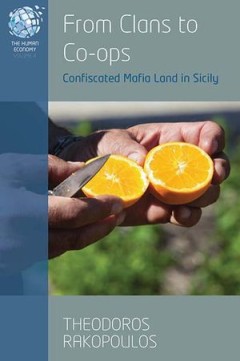
From Clans to Co-Ops: Confiscated Mafia Land in Sicily
From Clans to Co-ops explores the social, political, and economic relations that enable the constitution of cooperatives operating on land confiscated from mafiosi in Sicily, a project that the state hails as arguably the greatest symbolic victory over the mafia in Italian history. Rakopoulos’s ethnographic focus is on access to resources, divisions of labor, ideologies of community and food,…
- Edition
- -
- ISBN/ISSN
- 9781785336065
- Collation
- -
- Series Title
- -
- Call Number
- 301 RAK f
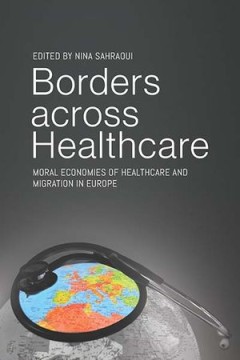
Borders Across Healthcare: Moral Economies of Healthcare and Migration in Europe
Examining which actors determine undocumented migrants’ access to healthcare on the ground, this volume looks at what happens in the daily interactions between administrative personnel, healthcare professionals and migrant patients in healthcare institutions across Europe. Borders across Healthcare explores contemporary moral economies of the healthcare-migration nexus. The volume documents t…
- Edition
- -
- ISBN/ISSN
- 9781789207439
- Collation
- -
- Series Title
- -
- Call Number
- 301 BOR b
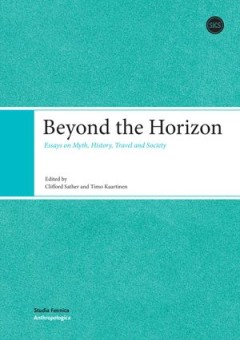
Beyond the Horizon
Society is never just a localized aggregate of people but exists by virtue of its members’ narrative and conceptual awareness of other times and places. In Jukka Siikala’s work this idea evolves into a broad ethnographic and theoretical interest in worlds beyond the horizon, in the double sense of “past” and “abroad.” This book is a tribute to Jukka’s contributions to anthropology…
- Edition
- -
- ISBN/ISSN
- 9789518580709
- Collation
- -
- Series Title
- -
- Call Number
- 301 SAT b
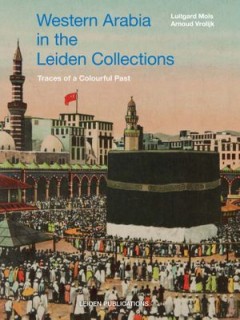
Western Arabia in the Leiden Collections. Traces of a Colourful Past
"In the late nineteenth and early twentieth century Dutch diplomats, scholars and travellers assembled unique collections in Jeddah, Mecca and Medina. The Dutch presence in Arabia, where they established a consulate in Jeddah, was intimately connected with the supervision of the annual pilgrimage to Mecca from the Netherlands East Indies, present-day Indonesia. Notable guests at this consulate …
- Edition
- -
- ISBN/ISSN
- 9789087282592
- Collation
- -
- Series Title
- -
- Call Number
- 297 MOL w
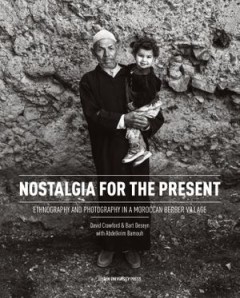
Nostalgia for the Present
Anthropology and photography have been linked since the nineteenth century, but their relationship has never been entirely comfortable—and has grown less so in recent years. Nostalgia for the Present aims to repair that relationship by involving intentional participants in an inclusive conversation; it is the fruit of a collaboration among an ethnographer, a photographer, a group of Moroccan …
- Edition
- -
- ISBN/ISSN
- 9789087282110
- Collation
- -
- Series Title
- -
- Call Number
- 770 DES n

Mana Māori. The Power of New Zealand’s First Inhabitants
This book takes you on a journey exploring the histories of the country's first Polynesian discoverers, its encounters with Europeans and the subsequent settling by Westerners. Particular attention will be paid to the Dutch explorer Abel Tasman and the Dutch immigration wave of the 1950s. Through a discussion of the meeting house and meeting grounds, the relationships Maori maintain to the land…
- Edition
- -
- ISBN/ISSN
- 9789087280833
- Collation
- -
- Series Title
- -
- Call Number
- 301 VEY m
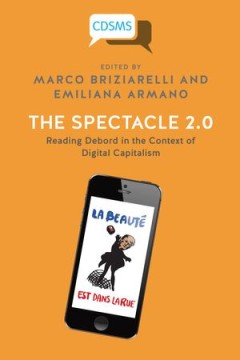
The Spectacle 2.0
Spectacle 2.0 recasts Debord's theory of spectacle within the frame of 21st century digital capitalism. It offers a reassessment of Debord’s original notion of Spectacle from the late 1960s, of its posterior revisitation in the 1990s, and it presents a reinterpretation of the concept within the scenario of contemporary informational capitalism and more specifically of digital and media labour…
- Edition
- -
- ISBN/ISSN
- 9781911534440
- Collation
- -
- Series Title
- -
- Call Number
- -
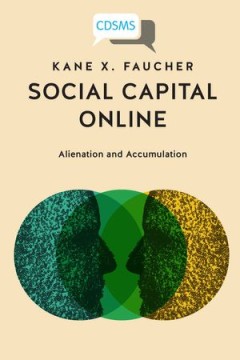
Social Capital Online
What is ‘social capital’? The enormous positivity surrounding it conceals the instrumental economic rationality underpinning the notion as corporations silently sell consumer data for profit. Status chasing is just one aspect of a process of transforming qualitative aspects of social interactions into quantifiable metrics for easier processing, prediction, and behavioural shaping. A work of…
- Edition
- -
- ISBN/ISSN
- 9781911534570
- Collation
- -
- Series Title
- -
- Call Number
- -
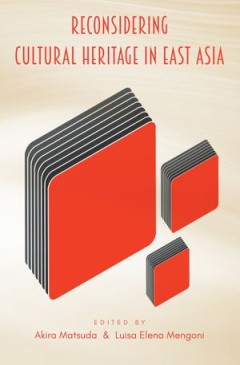
Reconsidering Cultural Heritage in East Asia
The concept of ‘cultural heritage’ has acquired increasing currency in culture, politics and societies in East Asia. However, in spite of a number of research projects in this field, our understanding of how the past and its material expressions have been perceived, conceptualised and experienced in this part of the world, and how these views affect contemporary local practices and notions …
- Edition
- -
- ISBN/ISSN
- 9781909188891
- Collation
- -
- Series Title
- -
- Call Number
- 301 REC r
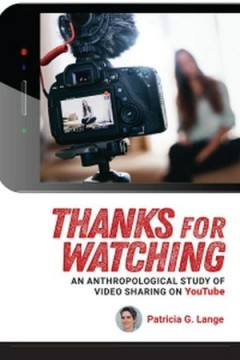
Thanks for Watching: An Anthropological Study of Video Sharing on YouTube
YouTube hosts one billion visitors monthly and sees more than 400 hours of video uploaded every minute. In “Thanks for Watching,” Patricia Lange offers an anthropological perspective on this heavily mediated social environment, demonstrating how core concepts from anthropology—participant-observation, reciprocity, and community—apply to sociality on YouTube and how to reconceptualize an…
- Edition
- -
- ISBN/ISSN
- 9781607329473
- Collation
- -
- Series Title
- -
- Call Number
- 301 LAN t
 Computer Science, Information & General Works
Computer Science, Information & General Works  Philosophy & Psychology
Philosophy & Psychology  Religion
Religion  Social Sciences
Social Sciences  Language
Language  Pure Science
Pure Science  Applied Sciences
Applied Sciences  Art & Recreation
Art & Recreation  Literature
Literature  History & Geography
History & Geography